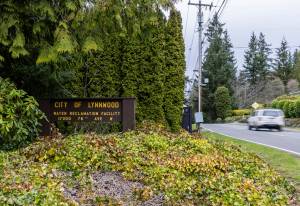Ball-field fun isn’t free
Published 9:00 pm Saturday, July 30, 2005
Before it’s “play ball,” it’ll be “pay dough” for owners of illegally built baseball, softball and soccer fields scattered across Snohomish County.

Michael O’Leary / The Herald The North Snohomish Little League plans to go through the permitting process for its field east of Snohomish.
|
A new state law lays out a path for such ball fields to become legal, but some farmers who own the fields are balking, saying it will be too costly to bring their fields up to code.
Others say they’ll go through the process, but they’d like for it to be as cheap and painless as possible.
As it stands now, it will cost at least $1,500 to get smaller fields through the county’s permitting process, and as much as $15,000 for bigger fields that require a traffic study, said Karen Watkins, a senior planner with the county.
That’s too much money for Don Klein, who plans to keep his baseball field in Arlington in use, but refuses to go through the permitting process.
“They indicated to me that it would cost $8,000. I told them I’m not interested,” he said, adding that his field is staying. “I’ll keep it up, because we go by Ballfield Farm.”
Losing even one field in the county would be dire, said Riki Mezzacapal, president of the Stilly Valley Little League.
“It will hurt the little towns that don’t have Little League ball fields to play on if these fields shut down,” Mezzacapal said.
If the ball fields her league uses have to go through an expensive county process, “Little League will jump in and help as best we can.”
Meanwhile, Edwin Stocker of Snohomish is waiting for more information before he decides whether to go through the permitting process.
“My fields, my land, my deed – it’s mine to do with what I want,” he said of his Stocker Field.
He said he doesn’t understand why the county is troubling him over getting permits when he is providing 42 acres of land for kids to play soccer – something he said the county should be doing.
“My field has been in operation for 30 years,” he said. “Who’s helping the county?”
Both Stocker and Klein wonder why they must get permits for fields they built before the Growth Management Act declared it illegal to build ball fields on farmland.
But Watkins said that has been illegal since the 1950s.
She encourages the owners of all fields that may have been built illegally to call her, including the owners of seven field complexes that already have been identified as having been built without permits.
If the farmer who owns the field runs a small mom-and-pop field with no Little Leagues or soccer clubs, they’ll most likely be left to go about their business, Watkins said.

|
If there are organized leagues playing on the field, bringing extra traffic to rural areas, then they likely will have to get permits or risk being shut down.
Legislation signed into law in May gives farmers a one-time opportunity to legalize their fields by changing the land designation from farmland to recreation. To qualify, ball field owners must register their field with the county by Sept. 9, and then get all the necessary permits. Registration is free.
“If your field is on designated farmland, this is your chance to get your field designated as recreation” land, Watkins said.
Dave Remlinger said he is willing to go through the process. He owns two of the seven ball-field properties – Sky River Field just outside of Monroe and Lord Hill Farms between Monroe and Snohomish.
“We’re ready to do it, but I have no idea what they’re going to require,” he said. “I’m confident in the (county) leadership that it won’t be a big nightmare, that we’ll be able to get through this.”
Like other ball field owners, Remlinger said the county should cut him some slack because he’s providing much-needed fields that the county hasn’t.
Watkins said the county plans to work with each property owner, and each case is different.
There will be a minimum level of permits that must be obtained, which when added together will cost about $1,500. She said larger operations such as Sky River Field would have to pay for a traffic study. That typically costs from $5,000 to $10,000.
However, the farmers could save money by together paying for a single traffic study that looks at all of the larger operations.
The County Council will have the final say on whether a ball field’s status gets changed. The deadline for such changes is June 30, 2006.
“I would say there’s a sense among the council that we want to make sure the fields that exist today get re-designated,” Councilman Jeff Sax said.
Nobody has any desire to shut down the fields, he added.
Both the North and South Snohomish Little Leagues said they will go through the process. It was the threat that the county would shut down the 17 fields that the two leagues built southeast of Snohomish that prompted the legislation that created the opportunity to make the ball fields legal.
“We’re just sitting in a holding pattern with this,” said Carol Aichele, president of North Snohomish Little League.
She said the key is to keep the process affordable.
“The situation is a little frustrating, but obviously, we’re at their mercy,” she said. “Really, what I think it’s going to boil down to is, who is going to go to bat for us?”
Reporter Lukas Velush: 425-339-3449 or lvelush@ heraldnet.com.




